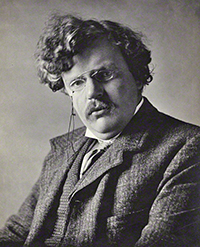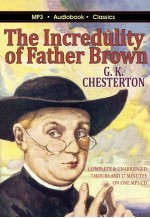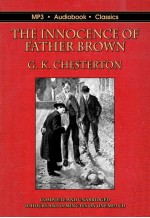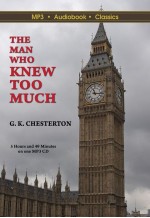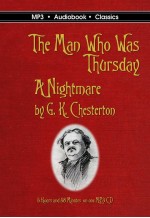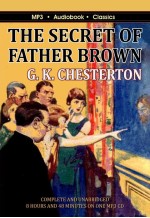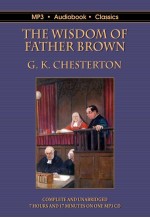G. K. Chesterton
| Gilbert Keith “G. K.” Chesterton (May 29, 1874 – June 14, 1936) was an English writer who addressed a wide array of subjects. His non-fiction work includes philosophy, biography, journalism, history, literary and art criticism, and Christian apologetics. His creative work includes poetry, plays, and fiction. He is best known for his Father Brown series of detective stories, his novel The Man Who was Thursday, his biographies of Charles Dickens and Thomas Aquinas, and his Christian apologetics Orthodoxy and The Everlasting Man. His style is characterized by frequent use of adages, proverbs, and allegory, and a penchant for paradox. His prodigious output includes 80 books, 200 short stories, several hundred poems, several plays and 4,000 essays. In the 1930’s he gave a series of about 40 talks on BBC Radio which were immensely popular. He was born in London, educated at St. Paul’s School and attended the Slade School of Art and University College but did not complete a degree. He worked in publishing and became a freelance journalist and critic, and was fond of engaging in public debates with friends such as H. G. Wells, Bertrand Russell, and especially George Bernard Shaw, with whom he had a congenial friendship in spite of their differences, and who remembered him as “a colossal genius”. Baptized an Anglican and raised Unitarian, he converted to Catholicism in 1922. His influence was well described in the homily given at his funeral: “All of this generation has grown up under Chesterton’s influence so completely that we do not even know when we are thinking Chesterton”. |
The Incredulity of Father Brown
“The Incredulity of Father Brown” is a collection of mystery short stories written by G.K. Chesterto..
$9.99
The Innocence of Father Brown
The Innocence of Father Brown is a collection of twelve short stories by G. K. Chesterton featuring ..
$9.99
The Man Who Knew Too Much
"The Prime Minister is my father's friend. The Foreign Minister married my sister. The Chancellor of..
$9.99
The Man Who Was Thursday
Written in 1908 and set in the Edwardian era, The Man Who Was Thursday is a classic suspense novel s..
$9.99
The Secret of Father Brown
The Secret of Father Brown is the fourth collection of short stories by G. K. Chesterton featuring t..
$9.99
The Wisdom of Father Brown
The Wisdom of Father Brown is the second collection of short stories by G. K. Chesterton featu..
$9.99

